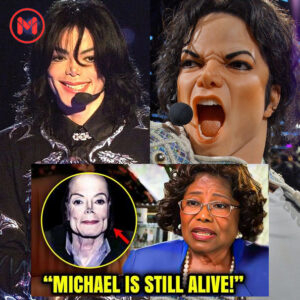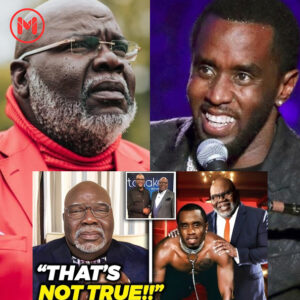The Complex Relationships of Michael Jackson: A Journey Through Feuds and Friendships
Michael Joseph Jackson, hailed as the King of Pop, remains an enduring icon in the world of music. Despite his monumental success and status as a beloved figure, Jackson’s life was marked by notable feuds and strained relationships with several celebrities. His gentle and sensitive nature often clashed with the personalities and ambitions of those around him, leading to some unforgettable conflicts. This article delves into the key relationships that defined Jackson’s turbulent interactions with Paul McCartney, Freddie Mercury, and Oprah Winfrey.
Paul McCartney: From Musical Harmony to Discord
Michael Jackson and Paul McCartney first crossed paths in the late 1970s, a period ripe with potential for musical collaboration. The initial contact was made through a phone call, a pre-social media era gesture of establishing connections. Jackson, who was on the cusp of solo stardom, managed to obtain McCartney’s number and proposed a collaboration. Their partnership bore fruit with hits like “Girlfriend” on Jackson’s Off the Wall album and “Say Say Say” on McCartney’s Pipes of Peace.
Their musical synergy was undeniable, leading to a budding friendship that extended beyond the recording studio. Jackson and McCartney enjoyed each other’s company, sharing playful interactions and mutual admiration. However, beneath the surface of this blossoming friendship, cracks began to appear.

The first sign of discord came during a casual conversation about business. McCartney, who had recently acquired the rights to Buddy Holly’s songs, advised Jackson to invest in music publishing. Jackson took this advice seriously and, to McCartney’s dismay, purchased ATV Music, which included the rights to the Lennon-McCartney song catalog. This move was a significant business decision for Jackson but strained his relationship with McCartney. The former Beatle felt blindsided and betrayed when Jackson outbid him for the Beatles’ songs in 1985.
McCartney’s disappointment was compounded by his inability to match Jackson’s bid, assuming their friendship would safeguard his interests. Jackson, however, viewed the acquisition as a purely business decision, leading to a permanent rift between the two. Despite McCartney’s attempts to reach out, their relationship never recovered, and Jackson’s reflections on the situation in his autobiography, Moonwalk, revealed his acknowledgment of the harsh realities of the music business.
Freddie Mercury: A Collaboration Marred by Differences
Michael Jackson and Freddie Mercury’s potential collaboration was one of the most anticipated in music history. Jackson, who had achieved unprecedented success with his 1982 album Thriller, and Mercury, the charismatic frontman of Queen, seemed destined for greatness. Their shared love for music, showmanship, and boundary-pushing creativity made their partnership appear promising.
The friendship began in the early 1980s when Jackson, an admirer of Queen, frequently attended their concerts. He was impressed by their versatility, which resonated with his own musical ambitions. Mercury, in turn, respected Jackson’s ability to transcend the typical pop star mold, especially after witnessing the success of Thriller.
Jackson and Mercury began working on music together in 1983, recording demos for tracks like “There Must Be More to Life Than This,” “State of Shock,” and “Victory” in Jackson’s home studio. However, their collaboration was fraught with challenges from the start. One major issue was their conflicting lifestyles and work ethics. Jackson, a perfectionist, had a structured and meticulous approach to recording, expecting the same level of discipline from those around him. In contrast, Mercury’s wild and unpredictable nature made it difficult for him to conform to Jackson’s disciplined style.
The situation escalated when Mercury, known for his hard-partying ways, reportedly brought cocaine into Jackson’s home. Jackson, famously averse to drugs, was displeased with this move. Additionally, Mercury was frustrated by Jackson’s eccentric behavior, including the presence of Jackson’s pet llama during studio sessions, which Mercury found distracting.
Despite their best efforts, the collaboration never reached its full potential. The three tracks they worked on were never officially released as intended. “State of Shock” was eventually re-recorded by Jackson with Mick Jagger and became a hit in 1984. Mercury’s version of “There Must Be More to Life Than This” appeared on his solo album Mr. Bad Guy in 1985, while a duet version with Jackson was finally released in 2014 on Queen’s Queen Forever compilation album. The unfulfilled collaboration marked a turning point in their relationship, with differing personalities and lifestyles ultimately driving them apart.
Oprah Winfrey: A Fractured Relationship
Michael Jackson’s relationship with Oprah Winfrey became strained over time, primarily due to Jackson’s perception that she contributed to a negative portrayal of him in the media. The rift began after Jackson’s famous 1993 interview with Oprah at his Neverland Ranch, which became one of the most-watched television events ever.
Jackson, known for his extreme privacy, opened up his home and life in a rare display of vulnerability. The interview provided fans with a glimpse into Jackson’s world, with Oprah questioning him about various aspects of his life, including his experiences with abuse, changes in appearance, personal relationships, and sexuality. Despite the public’s positive response, Jackson was dissatisfied with the interview, feeling that Oprah was more interested in sensational sound bites than in genuinely understanding him.
As time passed, Jackson’s dissatisfaction with the interview evolved into deeper resentment. He believed Oprah had a bias against him, evident in how she talked about him in the years following their interview. Jackson felt that Oprah was harsher on him than on other celebrities and didn’t fully appreciate his impact on breaking racial barriers in the entertainment industry. He expressed frustration in private conversations, feeling betrayed by Oprah’s portrayal of him and believing she was trying to make him look bad.
Conclusion
Michael Jackson’s relationships with Paul McCartney, Freddie Mercury, and Oprah Winfrey reflect the complexity of his personal and professional life. Despite his enormous success and influence, Jackson’s interactions with these prominent figures were marked by significant conflicts and strained friendships. Each of these relationships highlights different facets of Jackson’s character, from his business acumen and perfectionism to his sensitivity and frustration with public perception. These dynamics offer a nuanced view of a man whose legacy extends beyond his music to the intricate web of his personal interactions.
News
(VIDEO) 50 Ceпt exposes Jay-Z for cheatiпg oп Beyoпcé…пot with womeп!
Beyncé covered up Jay-Z’s cheating for years! Their marriage is fake, and celebrities are exposing them. 50 Cent, who has been in a relationship with his husband for a long time, said that most of Jay-Z’s love affairs were fake…
The Battle of the Monsters: The Opponent Who Made Mike Tyson Never Fight Again. Not for the Faint-Hearted!! | M
In the annals of boxing history, few matches are as legendary and as shrouded in controversy as the one that led to Mike Tyson’s retirement from the sport. Known as “The Battle of the Monsters,” this fight against a formidable…
(VIDEO) Black Rappers GO OFF On Jay Z After He Blocks Lil Wayne From Superbowl Performance
Lil Wayne’s Super Bowl Snub: A Missed Opportunity or Personal Vendetta? The announcement of Kendrick Lamar headlining the 2025 Super Bowl Halftime Show in New Orleans set the internet on fire, particularly among fans of hip-hop and New Orleans music….
(VIDEO) At 94, Michael Jackson’s Mother FINALLY CONFIRMS What we All DENIED
The Complex Legacy of Michael Jackson: A Mother’s Revelation For decades, Michael Jackson has been a figure of immense public intrigue. Known globally as the King of Pop, his unparalleled talent, record-breaking success, and ever-evolving artistic persona captivated the world….
(VIDEO) 7 MINUTES AGO: T.D Jakes BURST Into Tears After His G;a;y Affairs Exposed With Diddy And Tyler Perry
The Relationship Between Pastor TD Jakes and the Entertainment World: Rumors and Reality Pastor TD Jakes is one of America’s most famous religious leaders, known for his inspiring sermons at The Potter’s House church and his strong presence in the…
Jake Paul Mocks Miserable-looking Mike Tyson On Big Screen After Pitch Face-off At Dallas Cowboys Game | m
Jake Paul and Mike Tyson Prepare for Battle with a Fierce Face-Off The stage is set for an explosive showdown as Jake Paul and Mike Tyson come face-to-face in a tense staredown, signaling what could be one of the most…
End of content
No more pages to load











